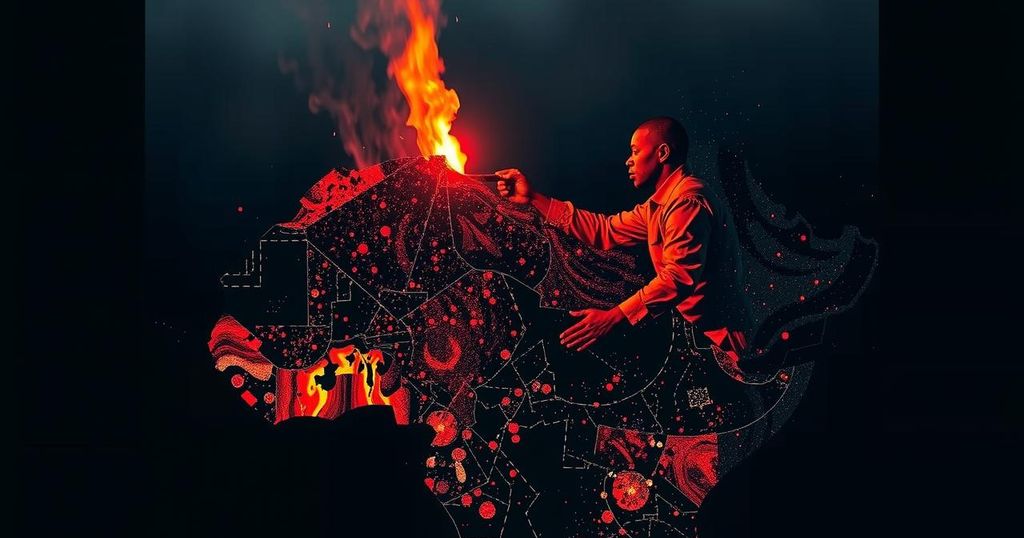Ghana’s Illegal Mining Crisis and Its Impact on Upcoming Elections

Ghana’s illegal mining, or “galamsey,” has emerged as a critical issue amid presidential elections. Miners, driven by economic necessity, face poor working conditions and environmental degradation. The situation underscores the urgent need for government intervention and sustainable mining practices, as both voters and advocates demand accountability from political leaders.
In Ghana, the burgeoning issue of illegal mining, referred to locally as “galamsey,” has surfaced prominently in the political discourse as the nation approaches its presidential elections. Individuals such as Frank, a galamsey miner, exemplify the desperation driving many into this perilous profession, as they earn incomes that compete with those of more established careers amidst rising unemployment and poverty. The environmental ramifications of these activities are stark, exemplifying a significant dilemma for incoming leadership.
The illegal mining sector in Ghana not only contributes about 40 percent of the nation’s gold production but also endangers critical environmental assets. Natural resources are under severe threat, with a staggering loss of fertile land and harmful pollution compromising waterways essential for drinking supplies. As the elections draw near, mounting pressure from concerned citizens and environmentalists highlights the urgency for decisive government action.
Ghana, noted as the world’s sixth-largest gold exporter and a vital cocoa producer, faces escalating challenges from the illegal mining sector. The prevalence of galamsey, driven by socioeconomic factors such as inadequate employment opportunities, has resulted in the degradation of arable land and water bodies throughout the country. As the economic landscape evolves, the tension between the need for immediate income versus long-term ecological stability becomes increasingly contentious, especially relevant as voters prepare to elect a new leader who must address these pressing concerns.
The current illegal mining crisis is intricately tied to the upcoming electoral decisions in Ghana, encapsulating a clash between economic survival and environmental preservation. Individuals like Frank reflect the desperation influencing many Ghanaian citizens, while environmental advocates emphasize the dire need for sustainable practices. Thus, the forthcoming elections stand as a critical juncture for shaping policy that may either exacerbate or alleviate the challenges posed by illegal mining.
Original Source: www.cbs19news.com








